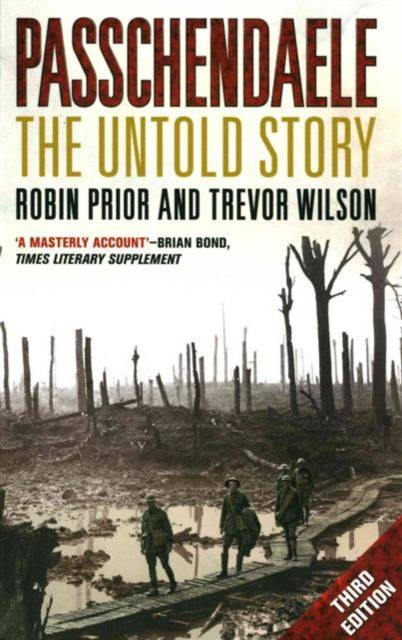
- Afhalen na 1 uur in een winkel met voorraad
- Gratis thuislevering in België vanaf € 30
- Ruim aanbod met 7 miljoen producten
- Afhalen na 1 uur in een winkel met voorraad
- Gratis thuislevering in België vanaf € 30
- Ruim aanbod met 7 miljoen producten
Zoeken
Omschrijving
No conflict of the Great War excites stronger emotions than the war in Flanders in the autumn of 1917, and no name better encapsulates the horror and apparent futility of the Western Front than Passchendaele. By its end there had been 275,000 Allied and 200,000 German casualties. Yet the territorial gains made by the Allies in four desperate months were won back by Germany in only three days the following March. The devastation at Passchendaele, the authors argue, was neither inevitable nor inescapable; perhaps it was not necessary at all. Using a substantial archive of official and private records, much of which has never been previously consulted, Trevor Wilson and Robin Prior provide the fullest account of the campaign ever published. The book examines the political dimension at a level which has hitherto been absent from accounts of "Third Ypres." It establishes what did occur, the options for alternative action, and the fundamental responsibility for the carnage. Prior and Wilson consider the shifting ambitions and stratagems of the high command, examine the logistics of war, and assess what the available manpower, weaponry, technology, and intelligence could realistically have hoped to achieve. And, most powerfully of all, they explore the experience of the soldiers in the light--whether they knew it or not--of what would never be accomplished.
Specificaties
Betrokkenen
- Auteur(s):
- Uitgeverij:
Inhoud
- Aantal bladzijden:
- 280
- Taal:
- Engels
Eigenschappen
- Productcode (EAN):
- 9780300221213
- Verschijningsdatum:
- 26/07/2016
- Uitvoering:
- Paperback
- Formaat:
- Trade paperback (VS)
- Afmetingen:
- 130 mm x 196 mm
- Gewicht:
- 340 g

Alleen bij Standaard Boekhandel
+ 43 punten op je klantenkaart van Standaard Boekhandel
Beoordelingen
We publiceren alleen reviews die voldoen aan de voorwaarden voor reviews. Bekijk onze voorwaarden voor reviews.











